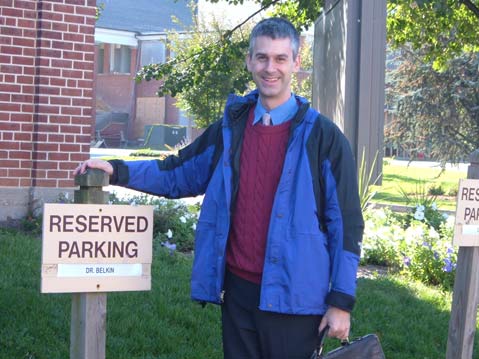‘Don’t Ask, Don’t Tell’ to Stand Down
UCSB's Palm Center Plays Key Role in Possible Repeal

After two decades of research and debate, the controversial “Don’t Ask, Don’t Tell” policy is on the eve of its repeal. The abolishment of the highly contentious public policy — which systematically prevents gay, lesbian, bisexual, and transgender individuals from serving openly in the United States’ armed forces — has become a cornerstone agenda item for the current administration, and top military leaders, including Chair of the Joint Chiefs of Staff Admiral Mike Mullen, have stated clearly that they believe the gay ban should be lifted. With the dialogue renewed and fears of inclusion still looming, the UC Santa Barbara-based Palm Center continues to provide cutting-edge research on the effects of gay servicemembers serving openly in armed forces worldwide.
As the premiere research center focusing on “Don’t Ask, Don’t Tell,” the Palm Center has been in the forefront of commissioning and disseminating research in the areas of gender, sexuality, and the military for more than 10 years. Operating as one of 14 official research centers for UC Santa Barbara’s Institute for Social, Behavioral, and Economic Research (ISBER), the center is the only think tank in the country solely devoted to studying the “Don’t Ask, Don’t Tell” policy. Research conducted by the center is continually cited on the floor of Congress as evidence of the necessity for major policy reform. In addition to compiling volumes of research, Palm Center scholars deliver briefings and lectures to academies for all branches of the U.S. military, as well as at centers for military study abroad.
“We have conducted research that chronicles 20 studies across 50 years showing that gay service does not undermine unit cohesion,” Frank said.
According to Nathaniel Frank — senior research fellow at the Palm Center and author of Unfriendly Fire: How the Gay Ban Undermines the Military and Weakens America — the current federal law was intended to appease military officials of the early ’90s, who believed openly gay servicemen and servicewomen would threaten unit cohesion and performance. However, the center’s research finds this sentiment to be unfounded, as more than 25 nations worldwide currently allow gays to serve openly in their respective militaries. “We have conducted research that chronicles 20 studies across 50 years showing that gay service does not undermine unit cohesion,” Frank said. Through the use of public concept mapping, Frank and the center mapped the key arguments related to the gays in the military debate, such as morality, health, privacy, sexual predation, and financial costs.
The “Don’t Ask, Don’t Tell” policy was passed in 1993, but public opinion polls today show that nearly 80 percent of Americans are in favor of gays serving openly in the nation’s armed forces. Since the inception of the policy, more than 10,000 U.S. servicemen and women have been discharged as a result of their sexuality. According to Dr. Aaron Belkin, director of the Palm Center and associate professor of political science at UCSB, it is possible for the policy to be changed or even abolished in the near future. “While it’s unclear if the law will be repealed this calendar year, the military leadership has indicated that the Pentagon will modify how it applies ‘Don’t Ask, Don’t Tell’ next month,” Belkin said in an email. “This change … marks the first significant change in the way the policy has been enforced, and may have a real impact on the daily lives of gay, lesbian and bisexual military members.” Belkin said the Palm Center will continue to release cutting-edge research on the policy through memos detailing the dozens of studies showing that openly gay service does not harm military effectiveness; material chronicling the damage inflicted by ‘Don’t Ask, Don’t Tell’; and the largest-ever study of the experiences of foreign militaries that have lifted their gay bans. To date, the center’s research has uncovered a number of flaws in the policy, including documentation showing that 244 doctors, nurses, and medical specialists were fired for being gay under “Don’t Ask, Don’t Tell,” despite shortages of medical personnel during the current Middle East conflicts.
Next week, the Palm Center plans to release a new, 150-page study on the status of gays and lesbians in foreign military forces around the world. The study will include the first-ever in-depth analysis of gays and lesbians in the South African Defence Force, which dropped its ban in 1998.



